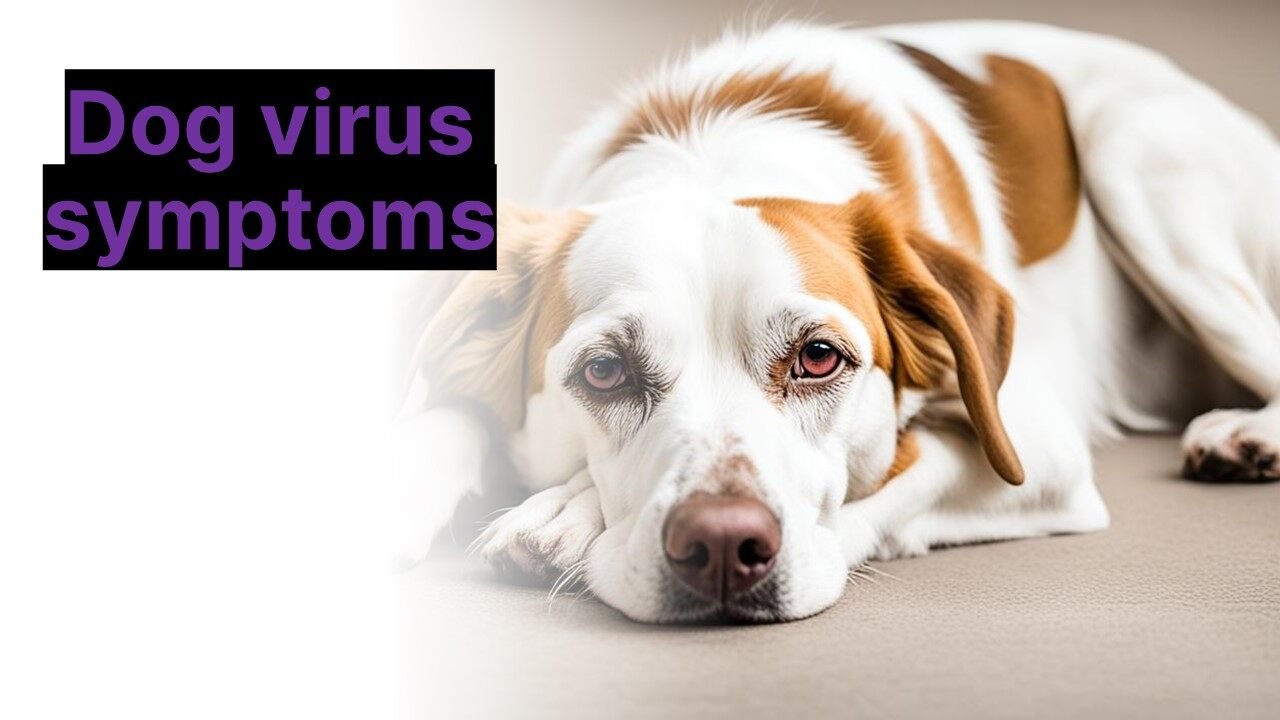Dogs are very good at hiding their sickness. This makes it hard for owners to know when something’s wrong. Still, there are changes you might notice in your dog. These could show your dog has a virus. It’s key for pet owners to recognize these signs and get vet help if needed.
Key Takeaways:
- Pay attention to subtle changes in your dog’s behavior and physical condition.
- Common dog virus symptoms include lethargy, decreased appetite, vomiting, diarrhea, coughing, sneezing, and nasal discharge.
- If you suspect your dog is sick, contact your veterinarian for proper diagnosis and treatment.
- Prevent the spread of dog viruses by keeping your dog up to date on vaccinations and minimizing exposure to other dogs.
- A nutritious diet and good hygiene practices can support your dog’s immune system and overall health.
Canine Parvovirus – A Serious Infectious Disease
Canine parvovirus is a very contagious illness that mainly affects dogs and their similar wildlife friends. It impacts the heart and the gut, showing severe signs. Certain dog types, like Rottweilers and Doberman pinschers, are at higher risk.
The disease can have different effects, but some clear signs show up. These include vomiting, bloody diarrhea, and being extremely tired. Not eating and losing weight are also common symptoms.
If these symptoms suddenly show up in your dog, it can be serious. This is especially true for puppies and those with weak immune systems. Getting quick help from a vet is very important.
Preventing Canine Parvovirus
To stop the virus from spreading, you should take steps to look after your dog and others nearby. The best defense is to vaccinate your dog. Ensure they get all their shots, including the distemper-parvo vaccine.
“Vaccination is the most effective measure against the virus.”
Being clean is also key. Regularly disinfect your dog’s spaces with something that fights parvovirus. Stay away from sick animals and their waste. Also, keep an eye on cleanliness in places where lots of dogs gather, like parks or daycare centers.
Mysterious Respiratory Canine Illness – What You Need to Know

In several U.S. states, a mysterious illness has affected dogs lately. This illness, known as Mysterious Respiratory Canine Illness (MRCI), shows common signs like coughing and sneezing. It also causes fever, eye discharge, and problems when breathing.
The cause of MRCI is not clear yet. But, it’s important for dog owners to know the warning signs. They should take their dogs to the vet if any symptoms show. Since MRCI seems to spread easily among dogs, fast action is key to stop it from spreading further.
If you think your dog might have MRCI, don’t wait. Make a vet appointment right away. A vet can diagnose your dog and start the best treatment.
MRCI can get really serious, leading to pneumonia or death. So, getting help quickly from a vet is important. It can make a big difference for your pet.
Remember: spotting the illness early and starting treatment matters a lot. Reach out to your vet if your dog is showing any unusual signs. Your quick action could save your dog’s life.
Preventing the Spread of Dog Viruses
To stop dog viruses from spreading, pet owners can do a lot. First, make sure your dog’s shots are current. These vaccines help your dog’s body fight off illnesses. They can lower the chance of getting sick and make any sickness not so bad.
Avoid too much contact with other dogs. This is key, especially in busy dog spots like parks and daycare. Touching sick dogs is often how these viruses move to others.
Good hygiene practices are also crucial in stopping virus spread. Wash hands well and clean things you and your dog touch a lot. This stops the virus from living on surfaces and keeps your dog safe.
Preventing Dog Viruses: Tips for Pet Owners
- Vaccinate your dog regularly to protect against viral infections.
- Avoid overcrowded dog areas and limit direct contact with other dogs.
- Practice good hygiene by washing your hands and disinfecting surfaces.
- Keep your dog’s living space clean and free from potential contaminants.
Feeding your dog well also helps. A good diet keeps their immune system strong. This means they can fight off viruses better.
By doing these things, you look after your dog’s health. Always watch for signs of sickness. If you see anything, talk to a vet right away.
Conclusion
It’s vital to know the signs of dog viruses for early treatment. Symptoms vary from small changes in behavior to serious signs. Pet owners must watch for these and see a vet if they worry. Canine parvovirus and a new respiratory illness are dangerous and need quick attention.
To keep their pets safe, owners should stay educated and take steps to prevent illnesses. This includes keeping up with vaccines and ensuring good hygiene. Also, avoiding contact with sick dogs helps. A healthy diet is also key in boosting immunity against viruses.
If you’re worried about your dog’s health, talking to a vet is best. Being careful and knowledgeable is our job as pet owners. Let’s work to keep our dogs away from common viruses by staying one step ahead.
FAQ
What are the common symptoms of a dog virus?
Some common symptoms of a dog virus are acting tired, not wanting to eat, throwing up, and having diarrhea. You might also see coughing, sneezing, and breathing problems. These signs show your pet might be sick.
What is canine parvovirus and what are the symptoms?
Canine parvovirus is very contagious and affects dogs. If a dog has it, they may have bad diarrhea, vomit a lot, not want to eat, and get very dehydrated. These signs can mean a dog is very sick with this virus.
What is Mysterious Respiratory Canine Illness (MRCI) and what are the symptoms?
Mysterious Respiratory Canine Illness is a sickness dogs can easily catch. It’s making dogs cough, sneeze, have runny eyes, and high fever. They might also find it hard to breathe.
How can I prevent the spread of dog viruses?
To stop dog viruses from spreading, keep your dog’s shots up to date. Try to avoid letting your dog meet unfamiliar dogs. Also, keep things clean and feed your dog healthy food to keep their body strong.
What should I do if I suspect my dog has a virus?
If you think your dog might have a virus, don’t wait. Call your vet to set up an appointment. They’ll check your dog and know the best way to help based on what’s wrong.









Leave a Reply